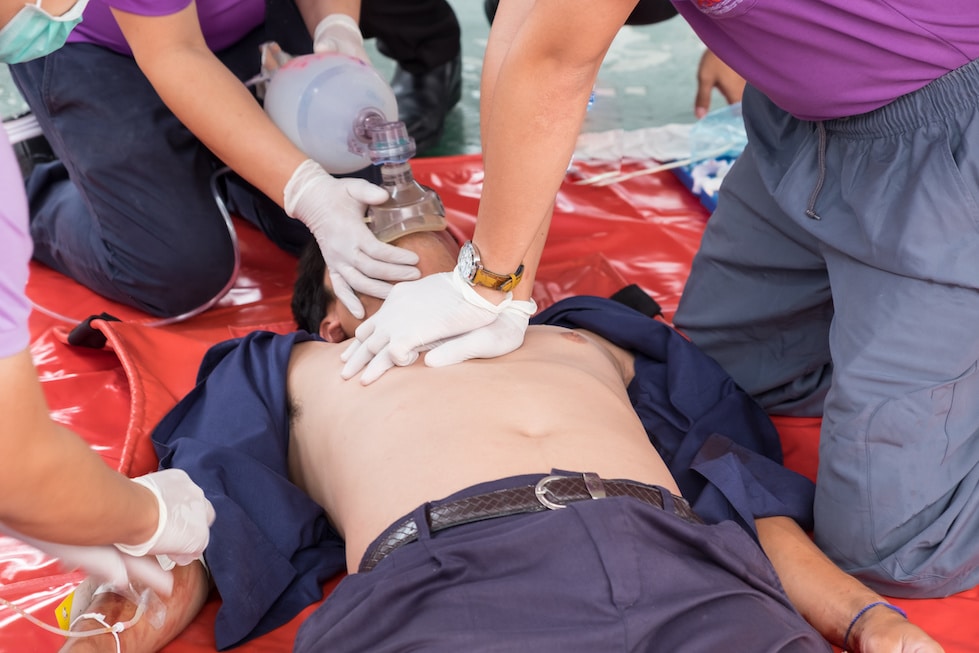Maintaining Resilience and Mental Health in the EMS Profession
Emergency MedicineThe suicide rate among emergency medical service (EMS) professionals rose a shocking 38 percent since 2009, according to a study published in the Western Journal of Emergency Medicine. But as shocking as that statistic is, it should come as no surprise.
As an emergency medical technician (EMT) or paramedic, you typically work a five-day rotation of 12-hour shifts (days or nights). You may start the week working Monday and Tuesday and then have Wednesday and Thursday off. You spend half your first day off catching up on sleep, doing chores, and running errands. You’re free the next day, but pretty much alone because everyone you know is at work or school or busy with other normal weekday obligations.

As a result, you likely lack the social connections many of us rely on for emotional support and psychological well-being. Come Friday, Saturday, and Sunday — when your friends and family are off work — you’re back on the job, providing critical medical care in highly stressful situations involving people who don’t always treat you with the respect and appreciation you deserve. And you have to perform this service with a smile on your face, because you don’t want a complaint on your record.
To make matters worse, emergency medical care leaves no room for mistakes. Quality assurance (QA) and quality improvement (QI) programs ensure that Monday morning quarterbacks are always looking over your shoulder to spot mistakes and offer their criticism and sage advice from their comfortable seats along the sidelines.
It’s Getting Worse Instead of Better
Thanks to high healthcare costs and doctor shortages, many people don’t have access to (more…)
Mental Health Issues for Emergency Medical Technicians
EMT TrainingBecoming a full- or part-time Emergency Medical Technician requires extreme and rigorous training, and it’s not a career choice to be taken lightly. That’s because emergency medical responders encounter patients in life-threatening situations, ranging from traumatic incidences of cardiac arrest and auto accidents, to drownings to drug overdoses.
EMS techs like the ones we train here at The National Center for Outdoor & Adventure Education work for hospitals, municipalities, and fire departments, and often provide emergency assistance in everyday urban areas as well as at ski areas, throughout the backcountry, at sports events, and even on offshore oil rigs. As a result, those who choose to become EMTs face high-stress situations daily, often dealing with patients who have just suffered a life-changing trauma.
Long shifts in an emergency department or in the back of an ambulance can take a toll, as well poor sleeping habits to due irregular working hours and poor eating habits because of the on-the-run nature of the profession. To make things worse, there’s a stigma attached to EMTs that purports a higher rate of mental health disorders than other occupations, including an increased risk of depression, suicidal thoughts, and a higher rate of substance abuse.
Which is why it’s important that those working in emergency medical services avoid burnout and take care of themselves so that they can continue to support the communities they serve.
Here are some things you can do to take care of yourself as an EMT: (more…)
Summer Vacation: When the Real Education Begins
Outdoor Education ResearchThe final bell has rung and children at public and private schools across the nation have cleaned out their lockers and headed out the doors and hopefully, outdoors.
Some of these children are departing schools that rarely allow their students to get down and dirty in the outside world — such as Polaris Charter Academy on Chicago’s West Side, where the school’s 450 students had been kept indoors due to fears associated with gun violence. In other parts of the country, fewer students get the opportunity to truly explore the world outside the playground or even lie down in the grass and point out the significance of cloud formations above.
These same schools, for a variety of reasons, don’t take the time to schedule impromptu short excursions to neighboring parks and wilderness areas, teaching students the names of native birds, plants and trees, pointing out urban and suburban wildlife, or following a slow-moving creek to a larger, more rapid tributary.
But just because most schools don’t fill that obligation doesn’t mean families can’t take over the job now that summer has arrived. The objective is to send these kids back to school in the fall — freshly cleaned up and rested — with heads full of new connections to the natural world.
So how do our children and students truly benefit from outdoor and adventure education? Here’s a short list of the positive attributes of wilderness exploration: (more…)
TALK TO US
Have any further questions about our courses, what you’ll learn, or what else to expect? Contact us, we’re here to help!

